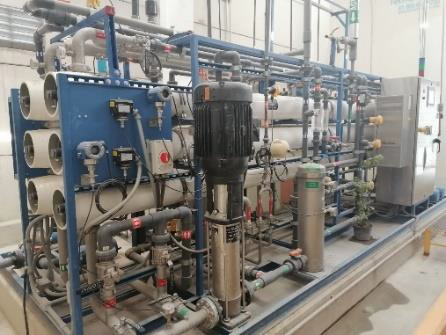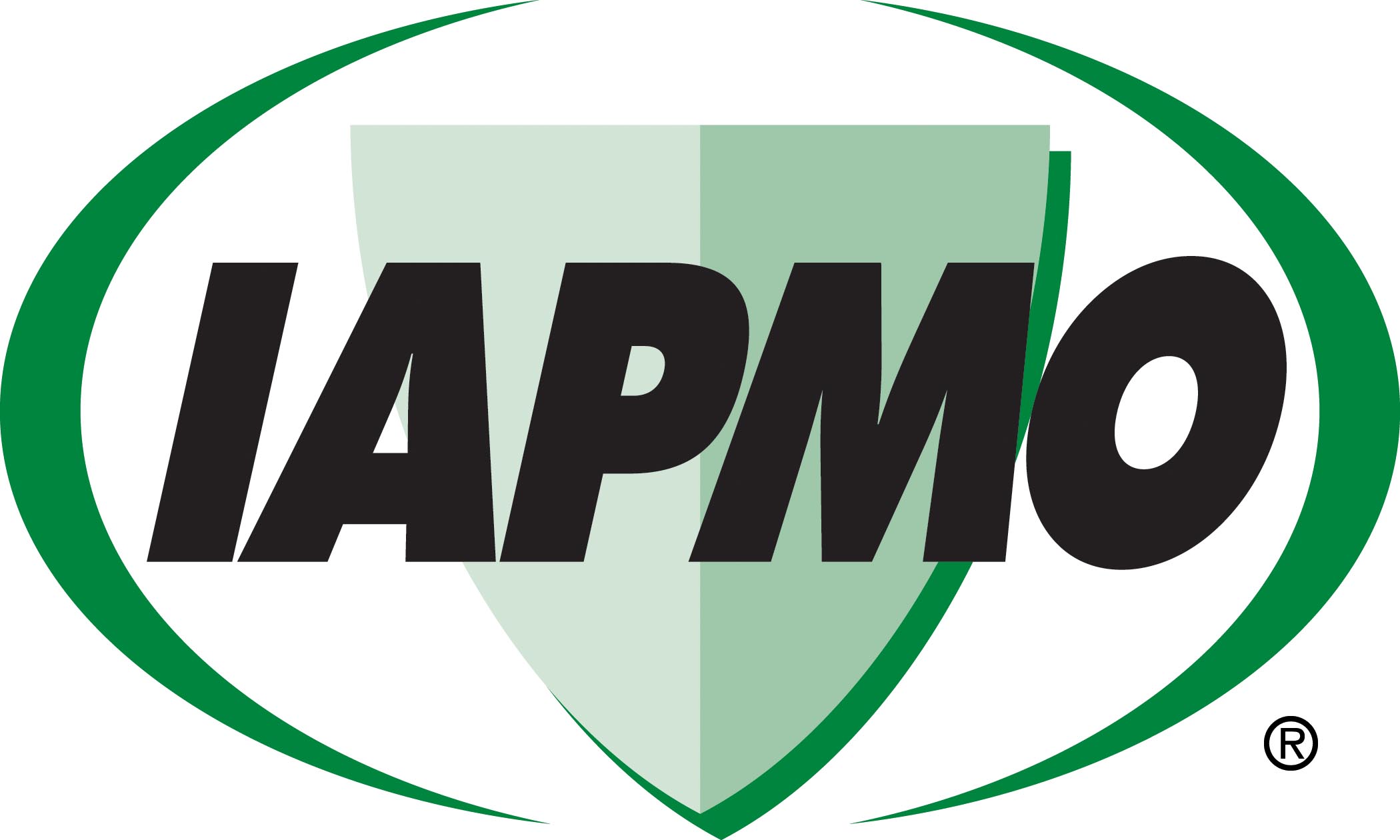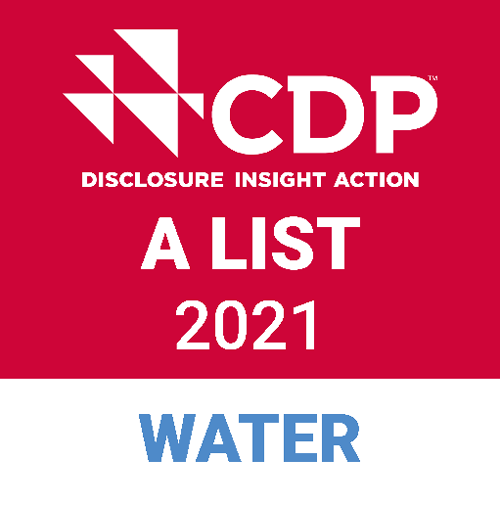Top rating recognizes multifaceted initiatives in water-related risk mitigation
Tokyo – LIXIL Corporation (“LIXIL”, TSE Code: 5938), maker of pioneering water and housing products, has earned its place in the Water Security A List 2021 published by CDP1, a global non-profit organization that runs the world’s leading environmental disclosure platform.
With environmental, social, and governance (ESG) disclosure becoming increasingly important, each year CDP, in cooperation with institutional investors, collects and evaluates data from the world’s major corporations on business risks and opportunities related to climate change, water resources, and forest conservation, and publishes its findings. CDP conducts surveys on water resource management to evaluate corporations’ activities for water conservation in their business activities, products and services, as well as their measures to address global sanitation problems. This year, LIXIL was selected as one of the 118 companies worldwide included on the Water Security A List, 39 of which are Japanese companies.
LIXIL’s Environmental Vision 2050 was established to achieve “Zero Carbon and Circular Living,” to and minimize the environmental impact of its products and operations globally, including a wide range of activities for water sustainability. LIXIL is also actively pursuing activities based on its Environmental Vision to mitigate and adapt to climate change, earning a score of “A-” from CDP in the climate change sector.
LIXIL CEO Kinya Seto said, “We are honored to be recognized for LIXIL’s ongoing efforts in water and resource management, and mitigation of environmental risk. As a global manufacturer of water and housing products, LIXIL believes that strengthening efforts to mitigate the impact of climate change and conserve water is essential for sustainable growth. We are promoting circular practices throughout the entire supply chain; from raw material procurement through to manufacturing, product use, and disposal. LIXIL’s Corporate Environmental Management team at our headquarters along with our technology business divisions will further strengthen activities and formulate company-wide environmental strategies and roadmaps, working with each plant to firmly promote environmental goals.”
LIXIL is a purpose-driven organization and its Corporate Responsibility (CR) strategy is aligned with its commitment to contribute to society as a business. It’s three Corporate Responsibility pillars includes Water Conservation and Environmental Sustainability, and Diversity and Inclusion and Global Sanitation and Hygiene.
Regular environmental assessment and mitigation of its operations and products
All LIXIL facilities conduct water risk assessments around the world to inform individual targets and plans. In the case of high-risk facilities, steady measures are taken to mitigate risks that include the promotion of water saving strategies, and installing water recycle and wastewater management systems. The water recycling system at Tlaxcala Plant (Mexico) treats wastewater generated in the product washing. Leak detection is also treated using reverse osmosis (RO)2, and these efforts contribute to 34,000m² of water reuse in the production process, annually.

LIXIL’s leading kitchen and bath products are designed to meet global demands and help consumers contribute to water conservation. In October 2020, LIXIL’s INAX brand launched the Eco Aqua Shower SPA with a technology that helps save water by filling it with air to enhance volume and the user experience. The GROHE brand’s EcoJoy technology saves water use in the bathroom and kitchen without compromising comfort; the flow restrictor drastically reduces water consumption from 10 liters to up to 5 liters per minute, while the aerator installed in the faucet ensures a consistently voluminous water jet.
The company applies its expertise in toilet design and technology to bring improved sanitation and hygiene to 100 million people by 2025. Spearheading its Global Sanitation and Hygiene commitment is the SATO brand, which offers simple, innovative and affordable solutions to cater to the unique challenges of emerging markets. Catering to requirements and preferences around the world, SATO is establishing local production and distribution systems for its innovative and affordable products; contributing to local economies by creating jobs, improving toilets, and promoting sanitation practices – addressing social issues and helping to protect communities’ water sources from pollution.
LIXIL has been selected for inclusion in international indices for corporate responsibility and sustainability, including Dow Jones Sustainability World Index, FTSE4Good Index Series, FTSE Blossom Japan Index, MSCI Japan Empowering Women Index, and S&P/JPX Carbon Efficient Index. Click for more information on corporate responsibility.
Notes
- CDP is a non-profit organization representing more than 590 institutional investors with more than US $110 trillion in assets under management, and the purchasing organizations of 200 companies. It sends questionnaires to companies to assess their measures for climate change, water conservation, and other issues, and discloses the responses to investors. Website: https://www.cdp.net/
- Reverse osmosis (RO) is a type of filtration film. The membrane allows water to pass through, while impeding impurities such as ions and salts.
For details on LIXIL’s policies and measures for sustainability, see: https://www.lixil.com/en/sustainability/

IAPMO
IAPMO develops and publishes the Uniform Plumbing Code®,the most widely recognized code of practice used by the plumbing industry worldwide; Uniform Mechanical Code®; Uniform Swimming Pool, Spa and Hot Tub Code®; and Uniform Solar Energy, Hydronics and Geothermal Code™ — the only plumbing, mechanical, solar energy and swimming pool codes designated by ANSI as American National Standards — and the Water Efficiency Standard (WE-Stand)™. IAPMO works with government, contractors, labor force, and manufacturers to produce product standards, technical manuals, personnel certification/educational programs and additional resources in order to meet the ever-evolving demands of the industry in protecting public health and safety.
Last modified: December 30, 2022

